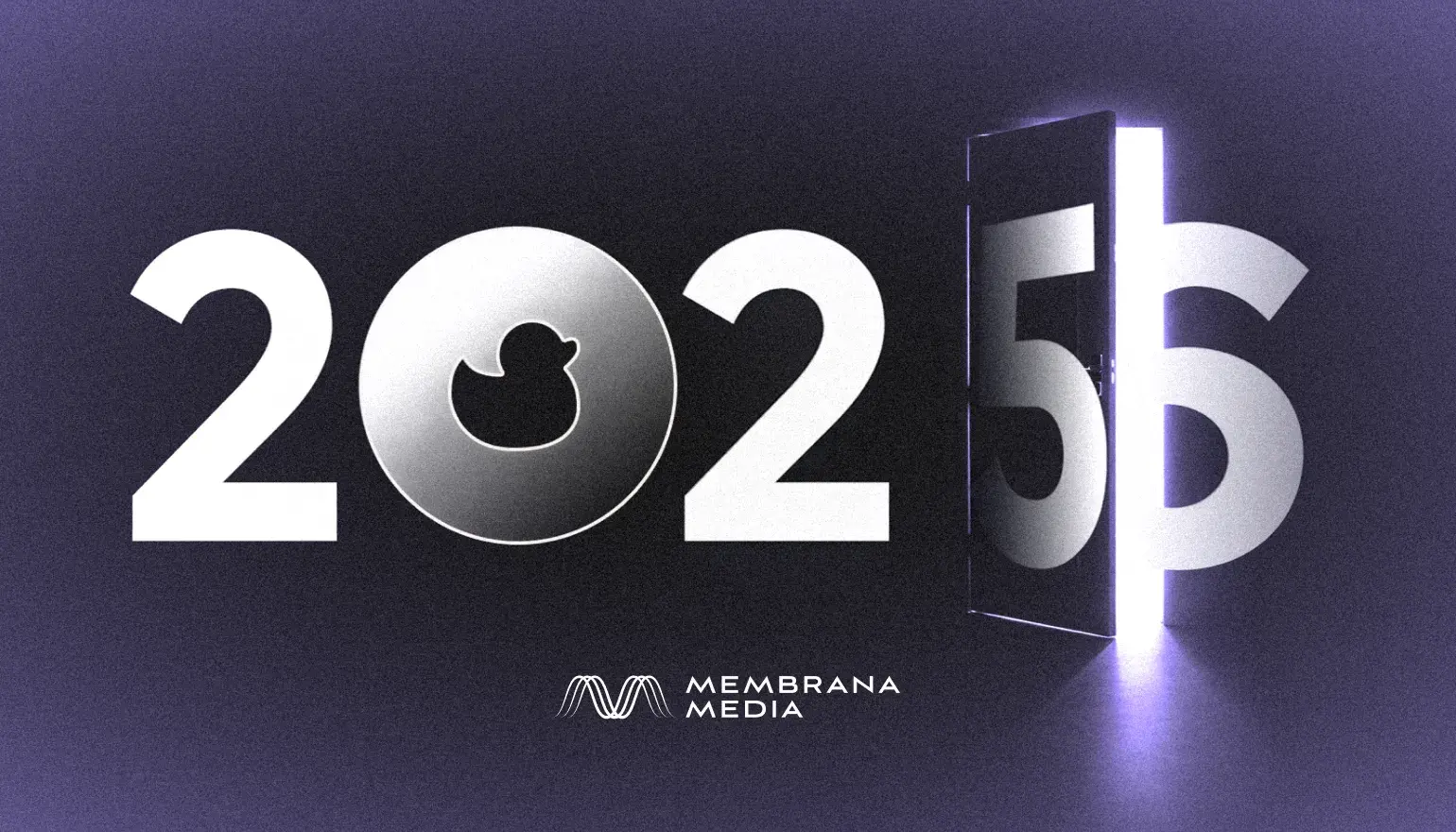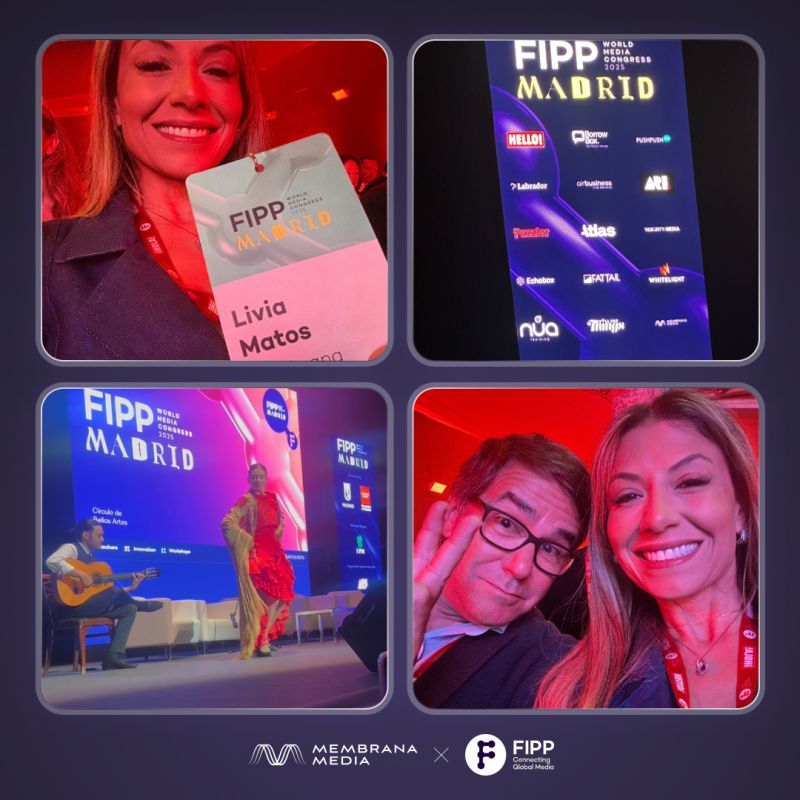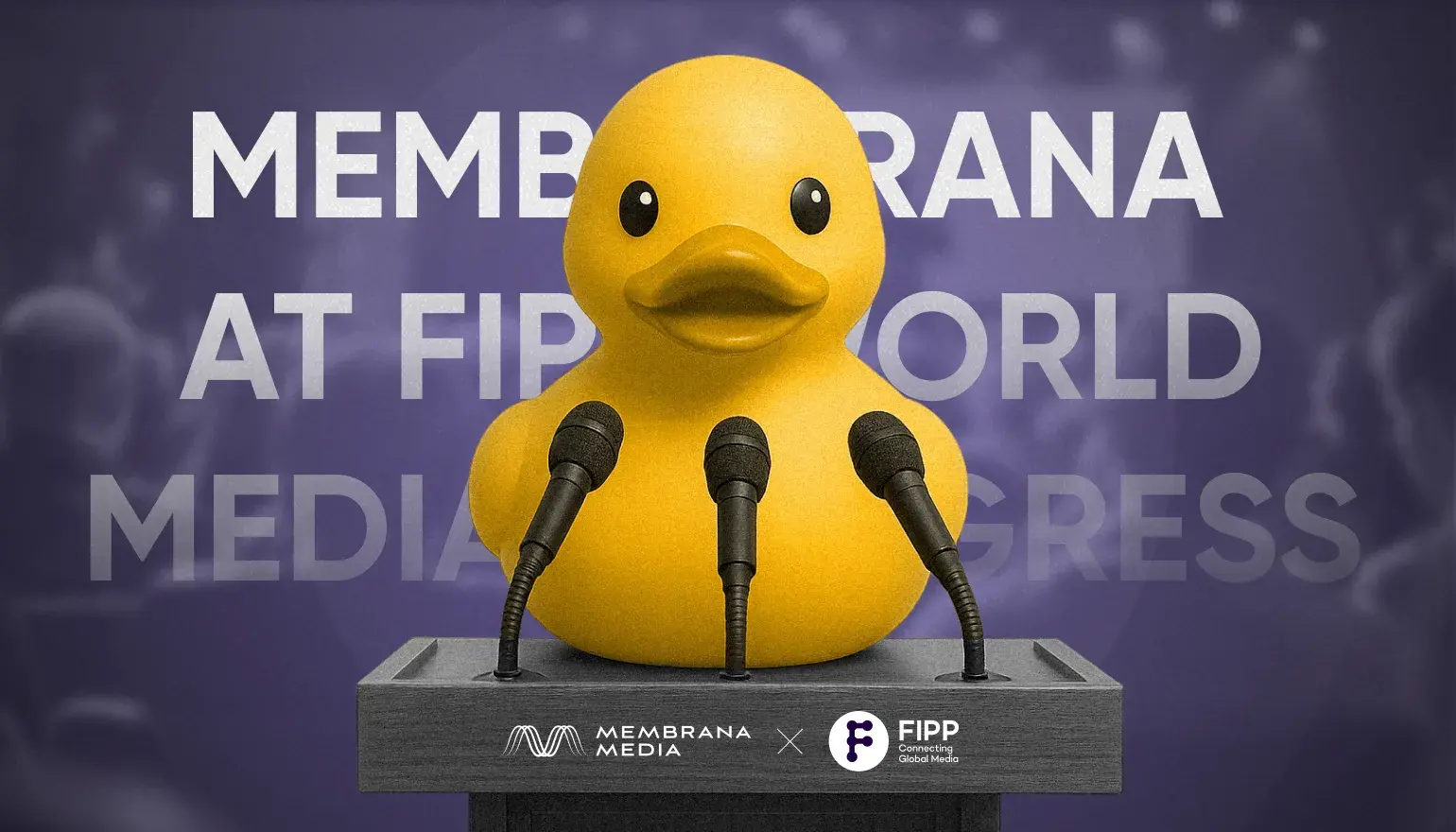
The 100th FIPP World Media Congress was not about looking back-it was about looking ahead. Under the bright skies of Cascais, leaders from TIME, The Economist, Hearst, and hundreds of other media brands gathered to tackle a shared challenge: in a world ruled by algorithms and short attention spans, how do you still matter?
Membrana Media joined the conversation, represented by LATAM Director Livia Ematné de Matos and Country Manager Raul Castillo, to explore how publishers are redefining value, voice, and reader relationships in 2025.
What Modern Readers Actually Want
In its pitch session, Raul Castillo addressed one of the industry’s toughest balancing acts: monetization versus user experience. The message was clear – readers in 2025 aren’t simply craving more content. They’re seeking context, transparency, and choice.

Publishers that treat audiences as communities, not data points, will lead the next phase of growth. Successful monetization should feel like part of the experience, not a tax on it.
TIME, The Economist, Hearst: Old Brands, New Playbooks
TIME’s COO Mark Howard captured the mood perfectly:
“We’re not trying to be the next big thing. We’re trying to be the best version of ourselves.”
That sense of authenticity echoed across panels. The Economist’s Luke Bradley Jones outlined a survival framework for the algorithmic era, the “Three Ds”:
- Differentiation – invest in premium, distinctive journalism.
- Direct relationships – build loyalty through personalization and ownership of audience data.
- Discoverability – in a post-search world, visibility depends on brand strength, not SEO tricks.
Meanwhile, Hearst’s Joe Martin emphasized that in a feed flooded with AI-generated content, trust has become the new currency.
“Being a trusted brand people recognize, that’s worth more than any click.”
Deals, Data, and Dialogue
The Congress wasn’t just about big-stage talks, it was about hallway conversations that could shape real partnerships.
Membrana Media held productive meetings with:
- Webedia, sharing our AdWall experience in Spain and LATAM;
- Grupo Prisa, one of the leading Spanish-language publishers;
- Daily Motion, exchanging reciprocal traffic and demand strategies;
- Alchemiq, developing AI-driven editorial tools to boost content visibility;
- and Fernando de Yarza, President of Henneo and one of the key voices of European media transformation.
Across all discussions, the tone was consistent: pragmatic optimism. Collaboration is replacing competition as publishers look to scale — without losing control over their audience or content.
What’s Next
If there was one recurring theme at the 100th FIPP Congress, it was reclaiming the human core of media. AI may accelerate production, but it can’t replace trust, emotion, or storytelling — the elements that truly drive loyalty.
For Membrana Media, the takeaway is clear: the future of publishing won’t be built by machines alone. It will be shaped by people who still know how to tell stories that matter.


